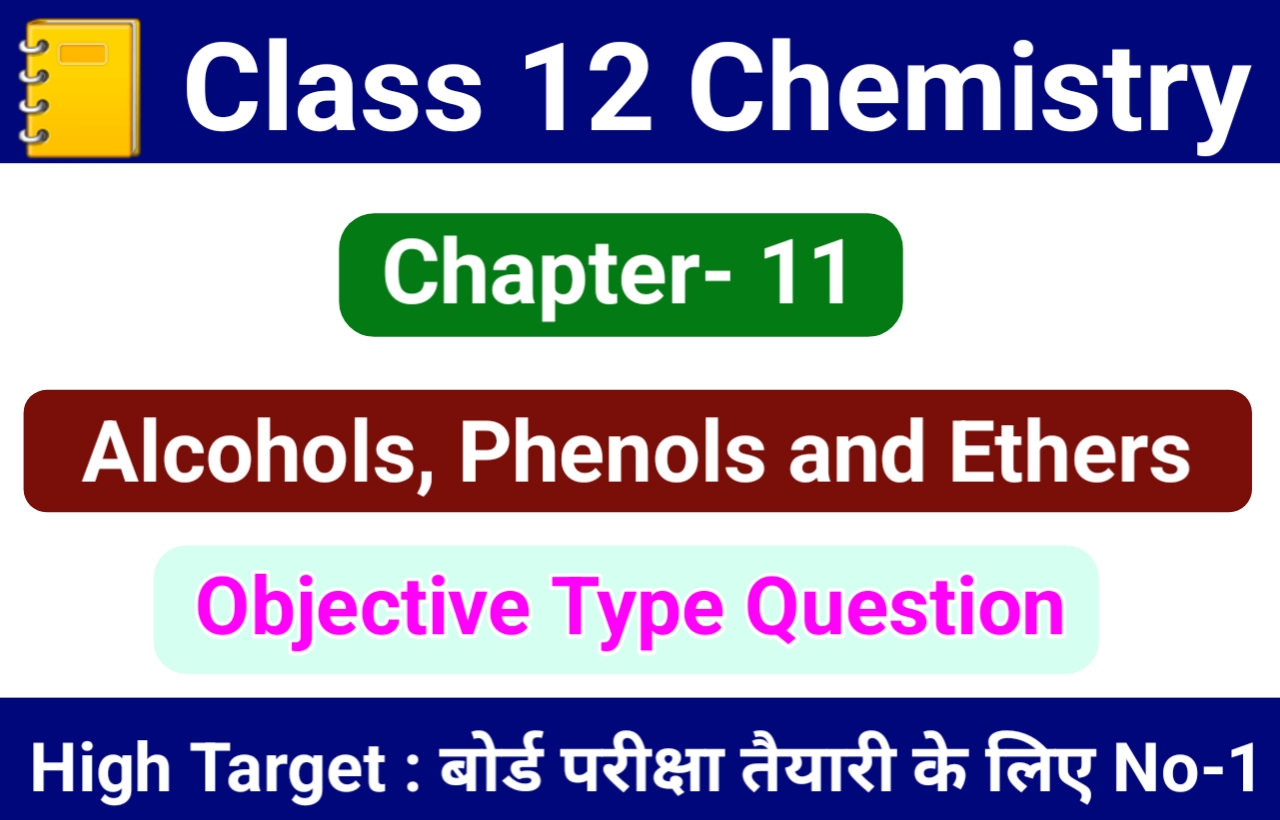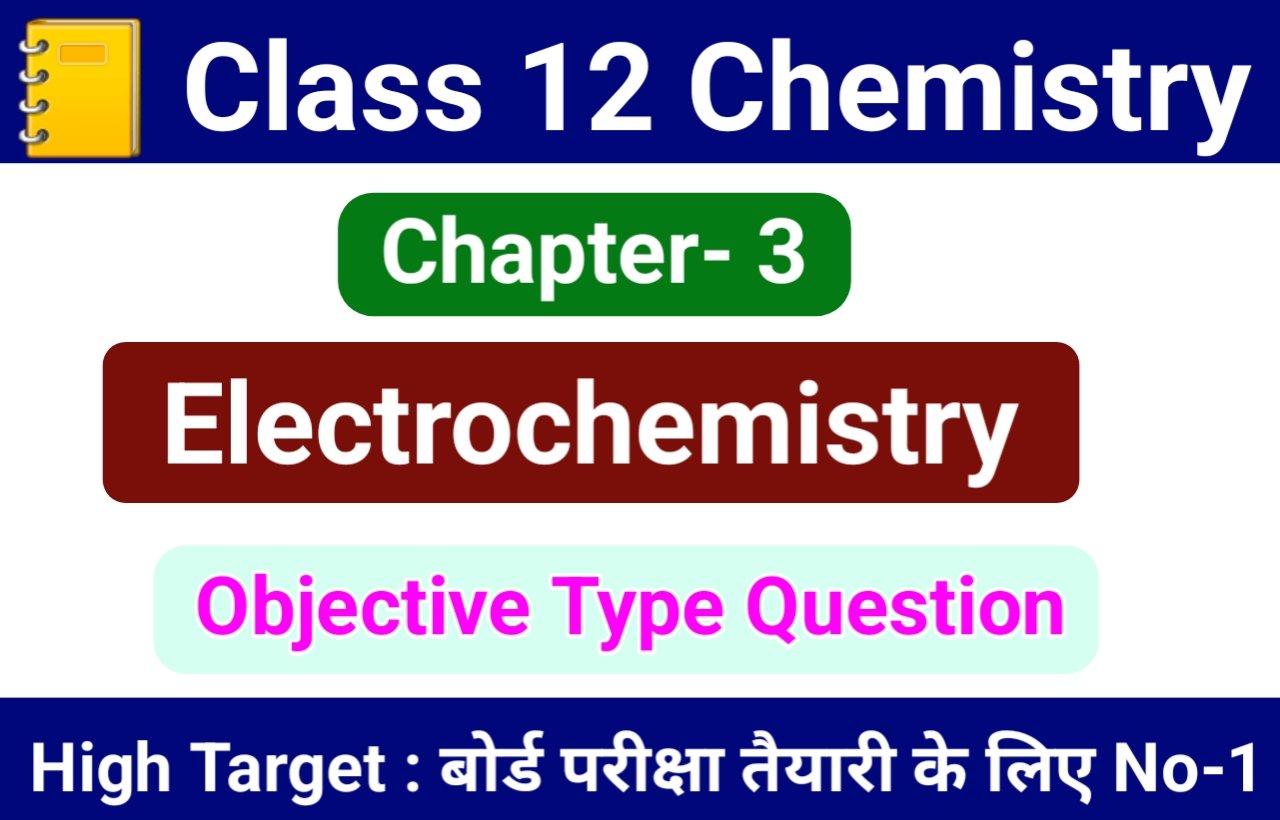
11. ALCOHOLS, PHENOLS AND ETHERS Objective
11. ALCOHOLS, PHENOLS AND ETHERS
1. One mole of ethyl acetate on treatment with an excess of LiAlH4 in dry ether and subsequent acidification produces
(A) 1 mole acetic acid + 1 mole ethyl alcohol
(B) 1 mole ethyl alcohol + 1 mole methyl alcohol
(C) 2 moles of ethyl alcohol
(D) 1 mole of 2-butanol
2. Which of the following reagents can not be used to oxidise primary alcohols to aldehydes ?
(A) CrO3 in anhydrous medium
(B) KMnO4 in acidic medium
(C) Pyridinium chlorochromate
(D) Heat in the presence of Cu at 573 K
3. Which of the following alcohols will give the most stable carbocation during dehydration ?
(A) 2-methyl-1-propanol
(B) 2-methyl-2-propanol
(C) 1-Butanol
(D) 2-Butanol
4. Order of esterification of alcohols are
(A) 3° > 1° > 2°
(B) 2° > 3° > 1°
(C) 1° > 2° > 3°
(D) None of these
5. What happens when tertiary butyl alcohol is passed over heated copper at 300°C ?
(A) Secondary butyl alcohol is formed
(B) 2-methylpropene is formed
(C) 1-butene is formed
(D) Butanol is formed
6. (CH3)3C – CH2OH ![]() In the reaction, X is
In the reaction, X is
(A) (CH3)2C = CHCH3
(B) CH3C ≡ CH
(C) (CH3)2 CHCH2CH3
(D) CH3 – CH2 -C = CH2
. ![]()
7. Which of the following alcohols reacts most readily with Lucas reagent ?
(A) CH3CH2CH2OH
(B) CH3 – CH – CH3
. ![]()
. ![]()
(C) CH3 – C + OH
. ![]()
(D) CH3 – CH – CH2 OH
. ![]()
8. Phenol when treated with excess of bromine water gives a white precipitate of
(A) 2, 4, 6-tribromophenol
(B) o-bromophenol
(C) p-bromophenol
(D) bromobenzene
9. Ortho-nitrophenol is less soluble in water than p– and m-nitrophenols because
(A) o-nitrophenol shows intramolecular H-bonding
(B) o-nitrophenol shows intermolecular H-bonding
(C) melting point of o-nitrophenol is lower than those of m– and p-isomers
(D) o-nitrophenol is more volatile in steam than those of m– and p-isomers
10. The best reagent to convert pent-3-en-2-ol into pent-3-en-2-one is
(A) acidic permanganate
(B) acidic dichromate
(C) chromic anhydride in glacial acetic acid
(D) pyridinium chlorochromate
11. Arrange the following alcohols in order of increasing reactivity towards sodium metal.
(i) (CH3)3C-OH (ii) (CH3)2 CH-OH (iii) CH3CH2OH
(A) (iii) < (ii) < (i)
(B) (ii) > (i) < (iii)
(C) (i) < (ii) < (iii)
(D) (iii) < (i) < (ii)
12. Conversion of phenol to salicyclic acid and to salicyaldehyde are known as (respectively)
(A) Reimer-Tiemann reaction and Kolbe’s reaction
(B) Williamson’s synthesis and Hydrobration oxidation
(C) Kolbe’s reaction and Williamson’s synthesis
(D) Kolbe’s reaction and Reimer-Tiemann reaction
13. Benzoquinone is prepared by reaction of phenol with
(A) Na2Cr2O7, H2 SO4
(B) KMnO4, H2 SO4
(C) Na2CrO4, HCl
(D) K2MnO4, H2SO4
14. Which of the following is the proper method to prepare n-hexane from n-propyl alcohol ?
CH3CH2CH2OH ![]() CH3CH2CH2Br
CH3CH2CH2Br ![]() CH3(CH2)4CH3
CH3(CH2)4CH3
(A) (X) → HBr, (Y) → HCN
(B) (X) → HBr, (Y) → Ns, ether
(C) (X) + Br2, (Y) → CH3CN
(D) (X) → Br2, (Y) → KMnO4
15. An alcohol X on heating with concentrated H2SO4 gives an alkene Y which can show geometrical isomerism. The alcohol X is
(A) CH3CH2CH(OH)CH3
(B) (CH3)2C(OH)(CH3)2
(C) (CH3)3 C (OH)
(D) (CH3)2 C (OH)CH2CH3
16. Methyl alcohol is industrially prepared by the action of
(A) CH3COCH3
(B) CO + H2
(C) CH3COOH
(D) C2H5OH
17. The ether that undergoes electrophilic substitution reaction is
(A) CH3OC2H5
(B) C6H5OCH3
(C) CH3OCH3
(D) C2H5OC2H5
18. How many alcohols with molecular formulae C4H10O are chiral in nature ?
(A) 1
(B) 2
(C) 3
(D) 4
19. Give IUPAC name of the compound given below:
CH3 – CH – CH2 – CH2 – CH – CH3
. ![]()
![]()
(A) 2-Chloro-5-hydroxyhexane
(B) 2-Hydroxy-5-chlorohexane
(C) 5-Chlorohexan-2-ol
(D) 2-Chlorohexan-5-ol
20. Phenol is less acidic than
(A) ethanol
(B) o-nitrophenol
(C) o-methylphenol
(D) o-methoxylphenol
21. Which of the following is most acidic ?
(A) Benzyl alcohol
(B) Cyclohexanol
(C) Phenol
(D) m-Chlorophenol
22. Mark the correct order of decreasing acid strength of the following compounds


(A) (V) > (iv) > (ii) > (i) > (iii)
(B) (ii) > (iv) > (i) > (iii) > (v)
(C) (iv) > (v) > (iii) > (ii) > (i)
(D) (v) > (iv) > (iii) > (ii) > (i)
23. The formulae of phenol is
(A) C6H5OH
(B) C2H5OH
(C) C3H4OH
(D) C6H6
24. The IUPAC name of CH3OC2H5 is
(A) Methoxy methane
(B) Ethoxy ethane
(C) Ethoxy methane
(D) None
25. The formulae of methanol is
(A) CH3OH
(B) CH3ONa
(C) HCHO
(D) CH4

